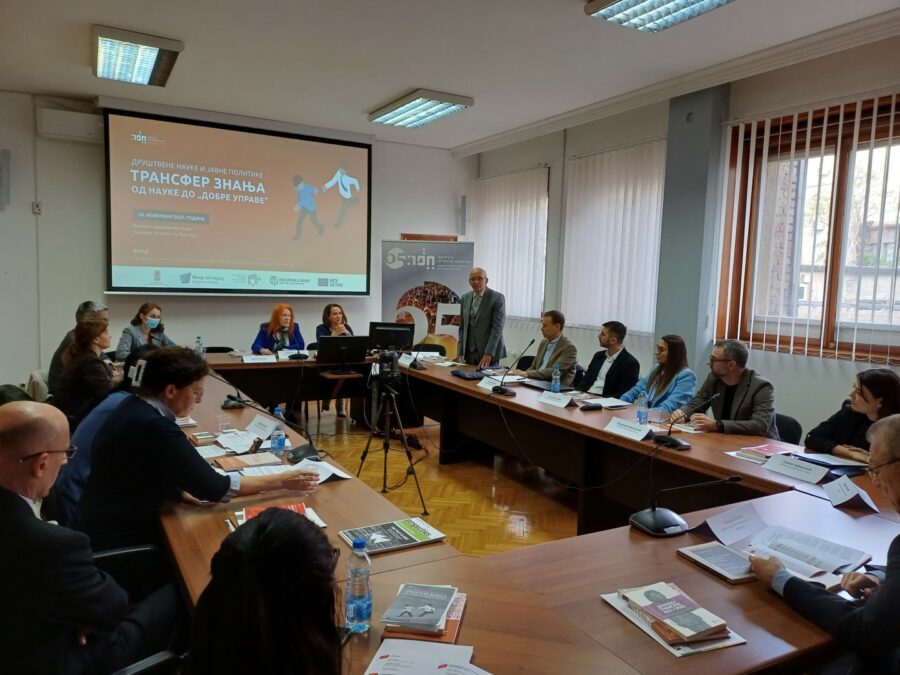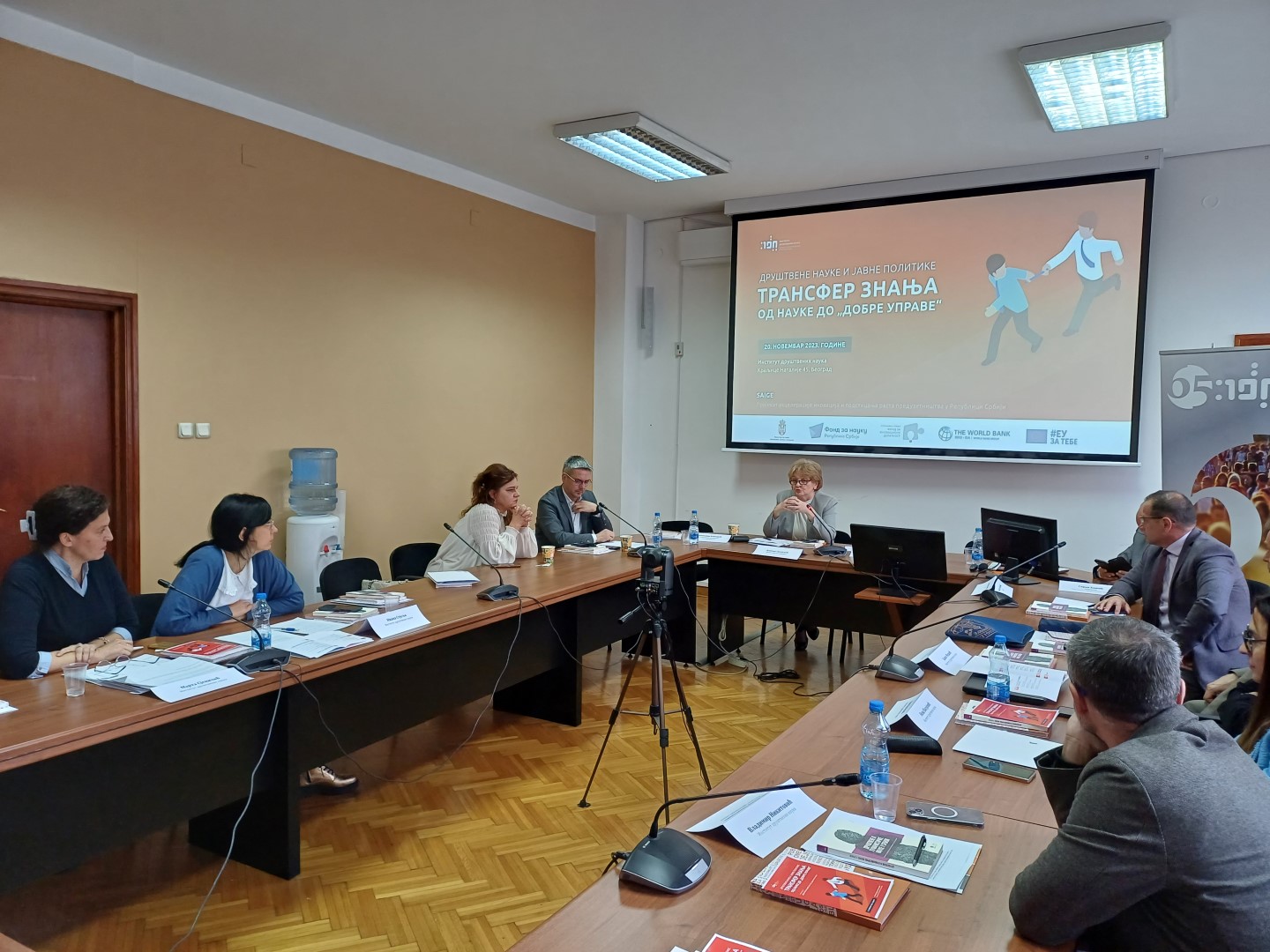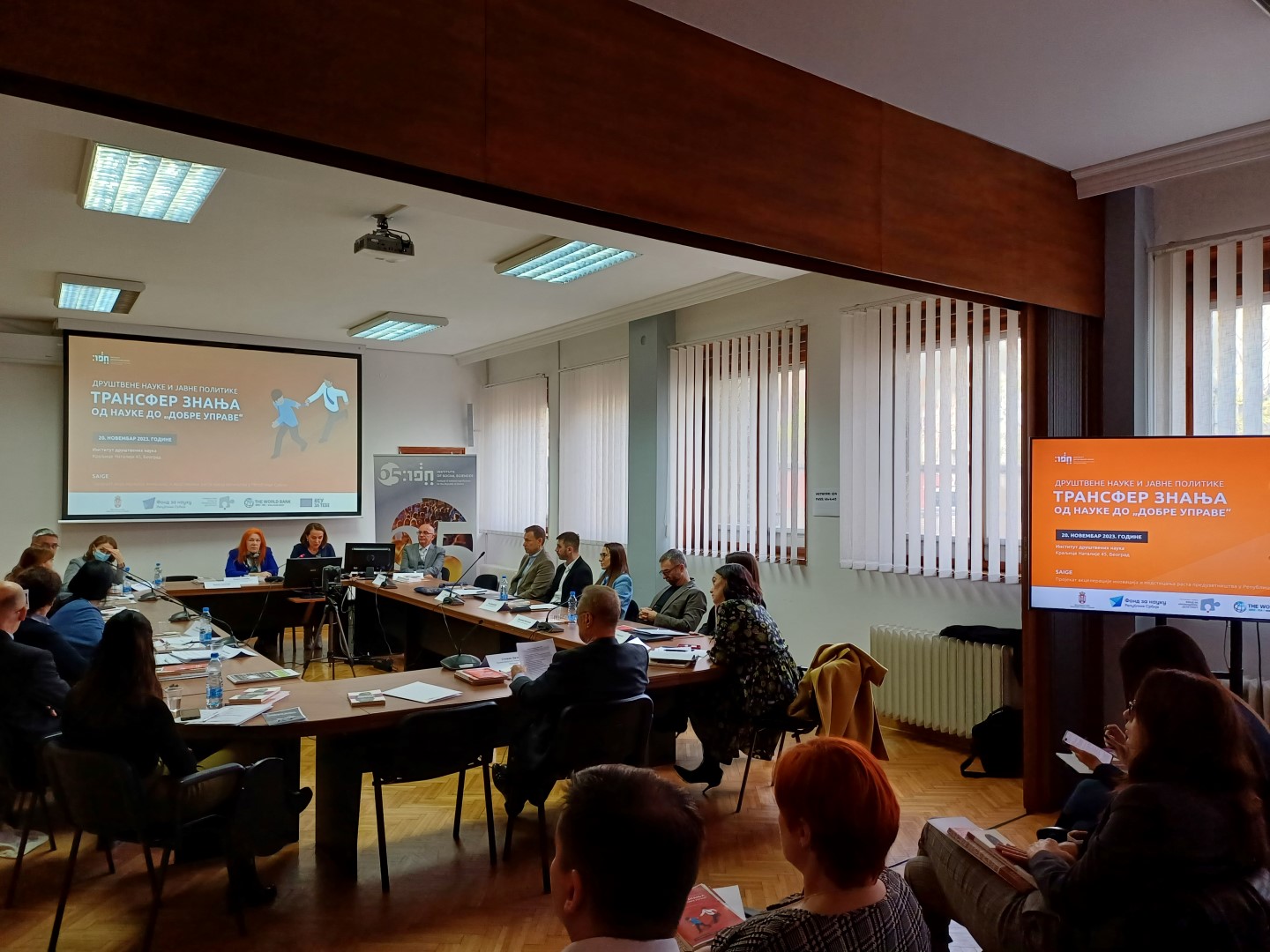The synergy between social sciences and public administration was discussed at the Institute of Social Sciences on 20 November, at the gathering titled “Social Sciences and Public Policies – Transfer of Knowledge from Science to ‘Good Governance’”.
The discussion was participated in by Danica Grujičić, Minister of Health of the Government of the Republic of Serbia, Snežana Paunović, Deputy Speaker of the National Assembly, Brankica Janković, Commissioner for the Protection of Equality, Bojana Tošić, Director of the Republic Institute for Public Policies, Prof Dr Marina Soković, Assistant Minister of Science, Technological Development, and Innovation, and other representatives of state bodies.
The development of fundamental and applied research at the Institute of Social Sciences serves to strengthen the scientific and methodological foundation, as well as to contribute to social progress. Collaboration with public administration involves adapting the ISS research to the needs of various tasks aimed at improving the rights and services for citizens.
Within the session titled “What Do Social Sciences Offer to Public Policies”, ISS researchers shared with the gathering participants their perspectives on how the ISS may contribute to improvement of public policies concerning a series of crucial topics: social sciences in the service of fundamental rights and social inclusion, creation of a positive population climate in the society, implementation of qualitative and quantitative research methodology with the purpose of supporting the principles of evidence-based policies, health as an integral part of all policies, as well as the problem of youth education and equality in the specific context of Serbia, with the focus on the elements relevant for formulating public policies.
During the discussion, certain conclusions were distilled, including the necessity of formalisation of the cooperation with the Ministry of Health. Additionally, a proposal was presented for the inclusion of the Institute of Social Sciences and concrete research in the processes of reporting by the Commissioner for the Protection of Equality.
Furthermore, the necessity of organising a work meeting was emphasised, where representatives of different ministries would jointly define and delegate specific topics and subjects that need to be researched in order to formulate public policies, define and implement new measures and monitor the old ones, etc. These steps represent crucial guidelines for further formal steering of the ISS research efforts towards the concrete needs and challenges of public administration in Serbia.




